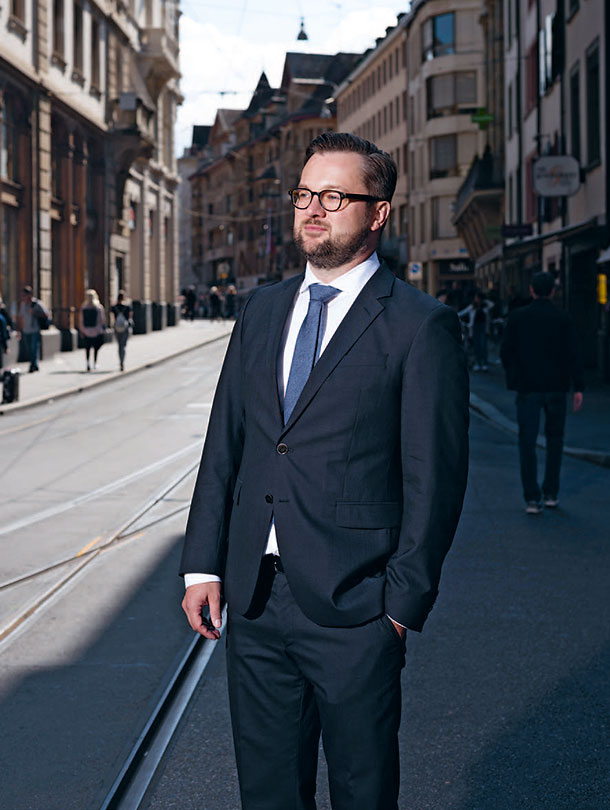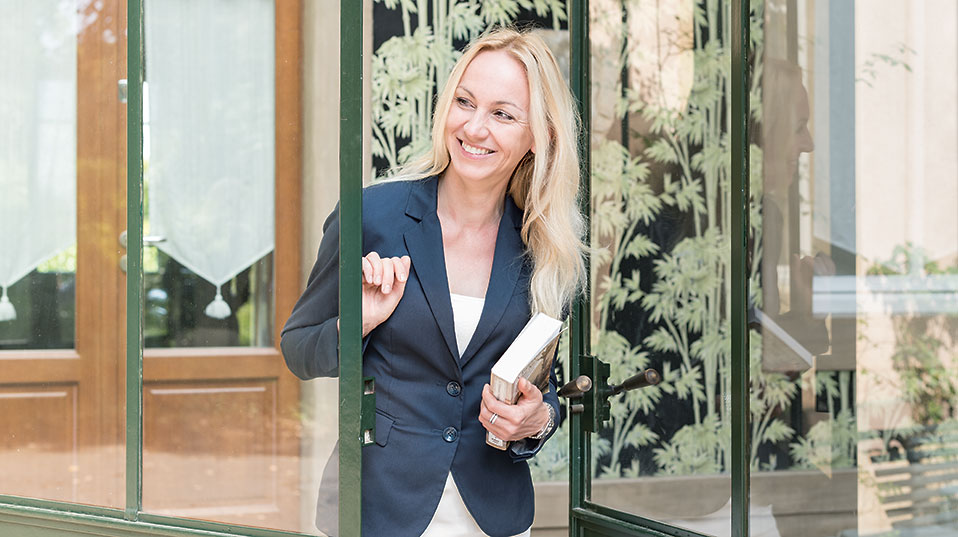Machines of the future
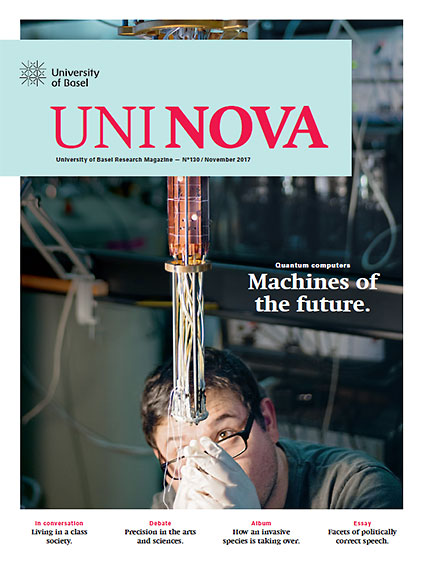 Download (PDF, 10 MB)
Download (PDF, 10 MB)
While quantum computers still exist only in the lab, they are seen as holding out great promise for the future. UNI NOVA introduces some approaches to quantum computing and describes the work that researchers at Basel University are conducting through a combination of theoretical ideas and ingenious experiments.
Subscribe to UNI NOVA-
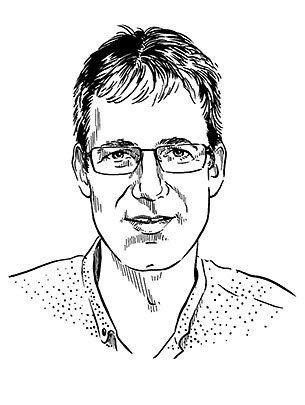 Dossier
DossierThe second revolution in quantum physics.
Text: Dominik Zumbühl / Quantum physics promises to deliver revolutionary new technologies such as the quantum computer – with far-reaching consequences for the economy and society. For many years, the University of Basel has been playing a pioneering role in quantum research.
-
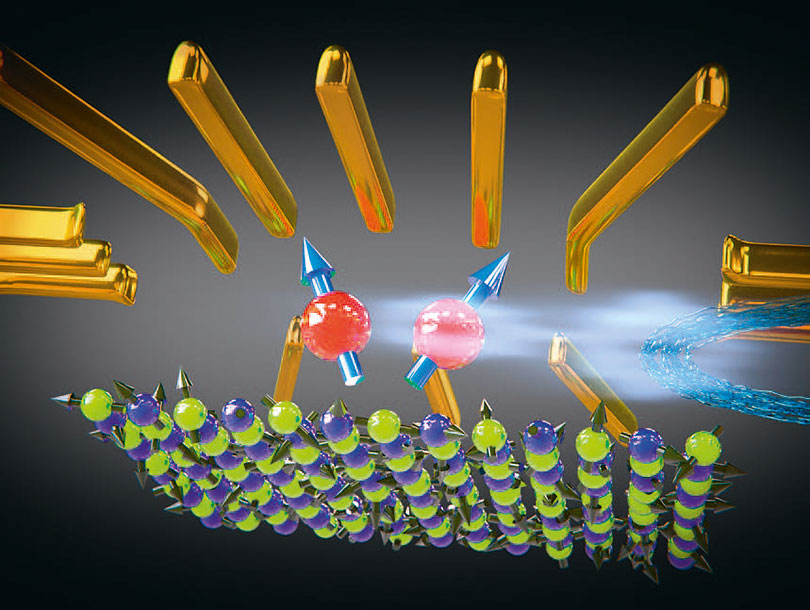 Dossier
DossierQubits – the building blocks of the quantum computer.
Text: Benedikt Vogel / A qubit can store a single bit – the smallest possible unit of digital information – and is the fundamental building block of a future quantum computer. Qubits made of semiconducting materials, such as those being researched in Basel, are among the most promising candidates.
-
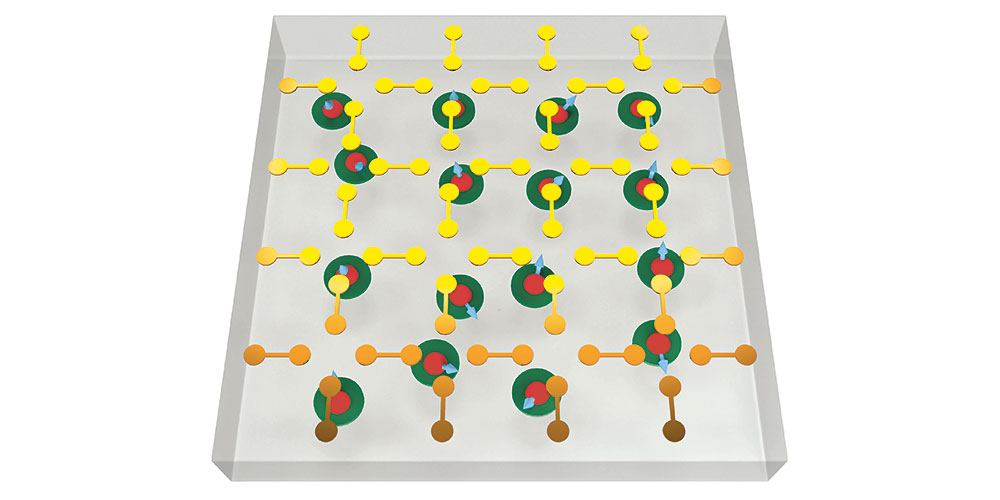 Dossier
DossierSilicon for the super computer.
Text: Leonid Leiva / Today’s modern computers rely on silicon chips. Researchers from Basel are convinced that this material will also prove its worth in the development of powerful quantum computers.
-
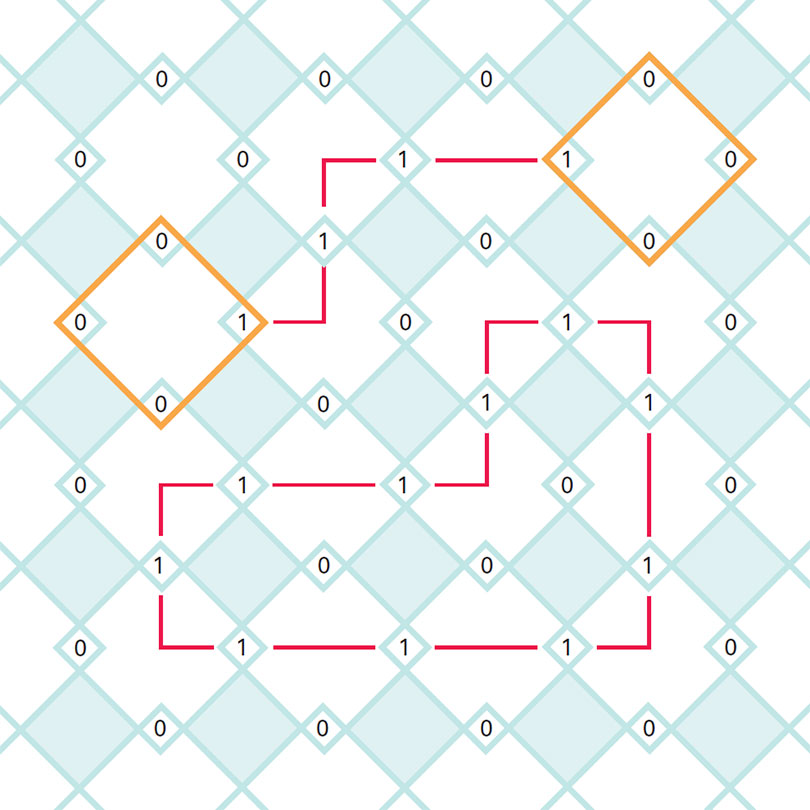 Dossier
DossierComputing in a chaotic world.
Text: Roland Wengenmayr / Quantum information is extremely fragile and can be disturbed by even the slightest interference. Error correction in a quantum computer will require highly sophisticated repair mechanisms. A glimpse into the mind of physicist James Wootton reveals what such mechanisms might look like.
-
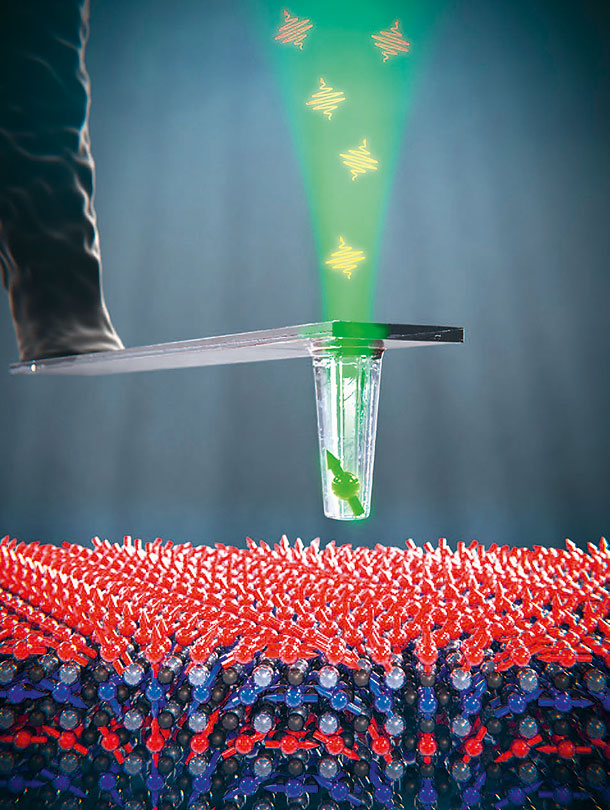 Dossier
DossierQuantum sensors revolutionize microscopy.
Text: Christel Möller / While quantum computers are still a thing of the future, the application of quantum-based sensors is already a reality. Physicists based in Basel have developed extremely sensitive sensors that are able to provide images at an unprecedented resolution.
-
-
Dossier
The miraculous property of the Majorana fermion.
Text: Tim Schröder / Quantum computers of the future promise to outshine their conventional forebears with their powerful ability to perform arithmetic operations in parallel. The problem is that qubits, the building blocks of quantum mechanical memory, can still only store information for a short space of time.
-
Dossier
A new world record of 57 seconds.
Text: Benedikt Vogel / Basel-based physicists are working on a quantum computer that will hopefully use the electron spin to carry digital information. For this to work, they will need to keep the spin stable for a sufficient length of time. Only recently, a new world record was set in Basel.
-
-
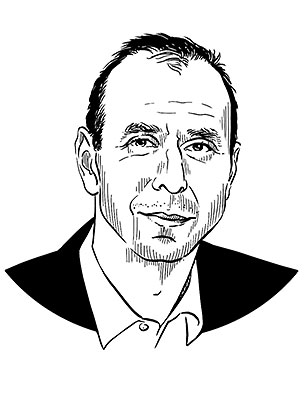 Opinion
OpinionHow precise are the sciences, Tobias Straumann?
Text: Tobias Straumann / The humanities and natural sciences differ fundamentally on the issue of how to depict the world accurately. They also deal with the problem of imprecise findings in different ways.
-
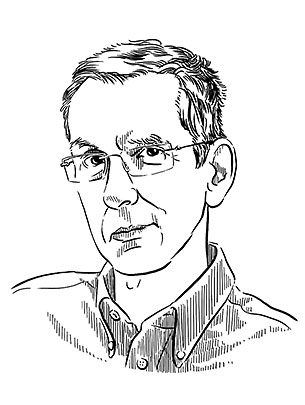 Opinion
OpinionHow precise are the sciences, Dieter Ebert?
Text: Dieter Ebert / The humanities and natural sciences differ fundamentally on the issue of how to depict the world accurately. They also deal with the problem of imprecise findings in different ways.
-
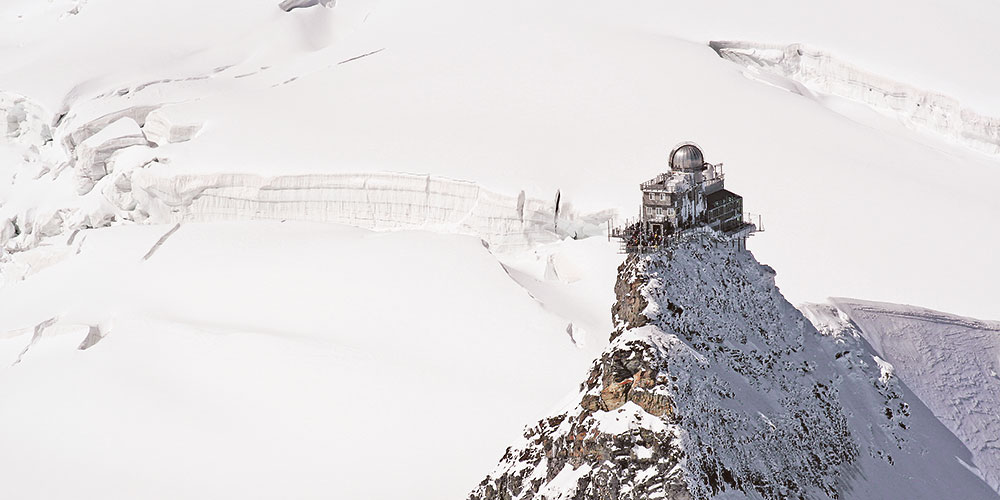 Research
ResearchHow snowflakes are formed.
Text: Yvonne Vahlensieck / Cold temperatures alone are not enough: for snowflakes to form, biological particles are often needed to act as ice nuclei. It is precisely these particles that Basel-based environmental scientists are researching on the Jungfraujoch glacier saddle and in the most northern part of Norway.
-
-
Research
Second-language support for children: the sooner, the better.
Text: Samuel Schlaefli / The sooner children from immigrant backgrounds can benefit from care outside the family, the more quickly they will learn to speak German, which in turn means they will be less disadvantaged once they enter school. These are the findings of a long-term study conducted by Basel developmental psychologists.
-
Research
Using stem cells to combat cerebral palsy.
Text: Irène Dietschi / Cerebral palsy is a physical disability caused by brain damage in early infancy. Raphael Guzman explores the potential of using stem cells to treat this paralysis of the brain in his laboratory at the Department of Biomedicine. In the future, the neurosurgeon hopes to be able to help affected children shortly after birth.
-
-
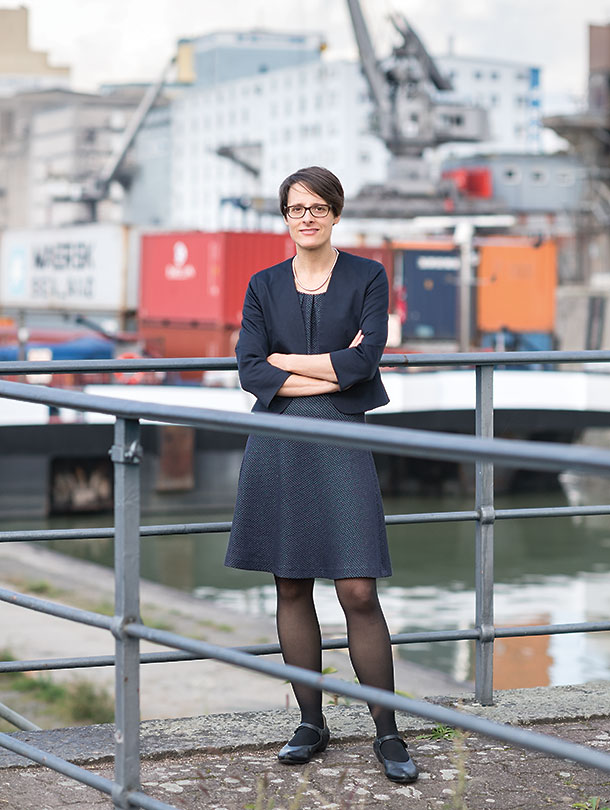 Portrait
PortraitThe international law expert and sea piracy.
Text: Christoph Dieffenbacher / When it comes to piracy and crime at sea, Anna Petrig, recently appointed Professor of International Law at the University of Basel, is very knowledgeable: the Swiss lawyer is regarded throughout the world as a sought-after expert in this subject. She also spends her free time on the water.
-
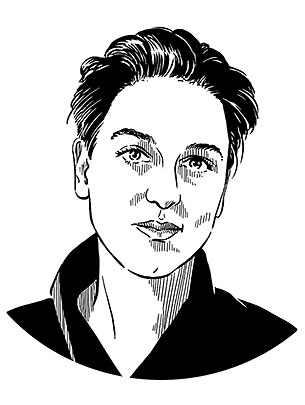 Opinion
OpinionIs there such a thing as politically correct language?
Text: Deborah Mühlebach / Political language criticism teaches us about the effects words actually have – and invites us to open up to other people through language.
-
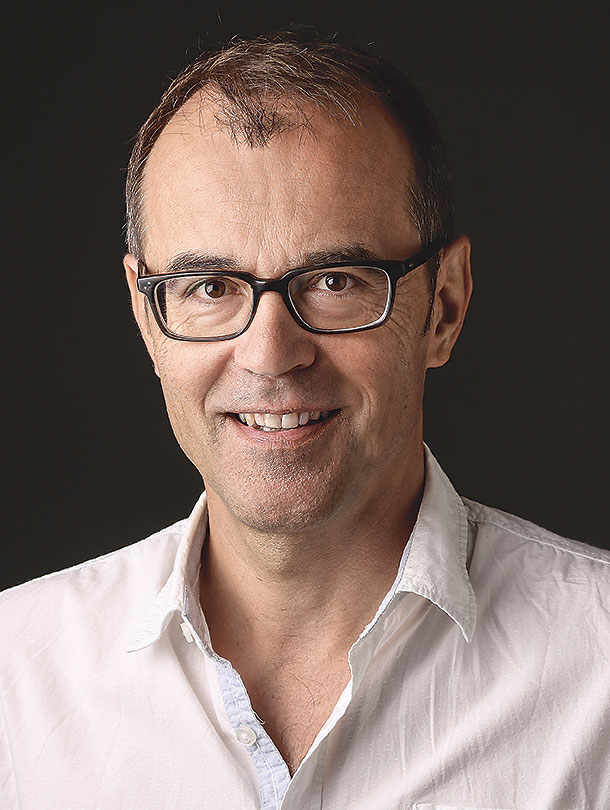 Alumni
Alumni“My degree was training for life.”
Interview: Bettina Huber / Theo Stich, alumnus of the University of Basel, is a freelance writer/producer, and owner of the company Lumenfilm. He takes an individual approach to filmmaking: he looks for new subjects or explores an existing topic from an original perspective.
-
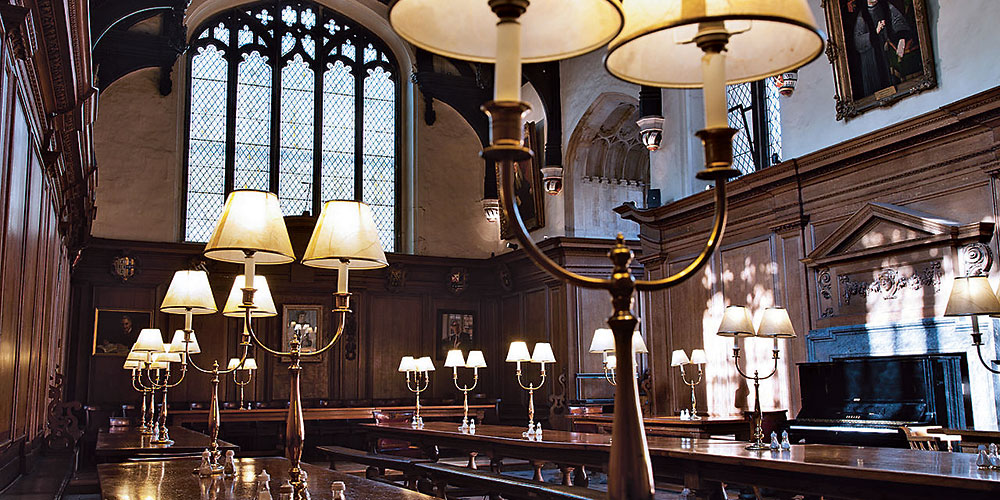 Alumni
AlumniNew program funds visits within Switzerland and abroad.
Text: Roman Baumann Lorant / PRO IURE, the alumni association for Basel law students, has created a program that regularly pays for current students to visit legal institutions in Switzerland and abroad. One such group recently travelled to Great Britain on a visit to Oxford and London.
-
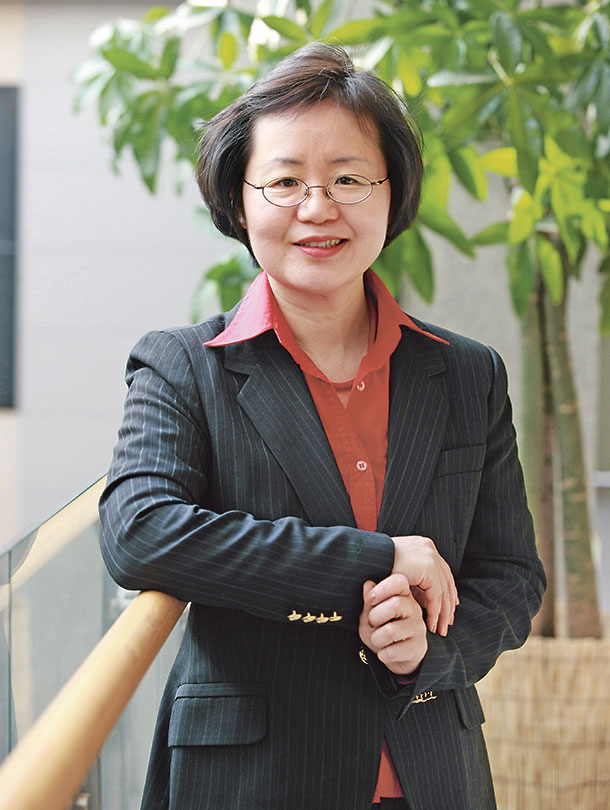 Alumni
AlumniChristian Theology in South Korea.
Letter from Seoul: Meehyun Chung /


